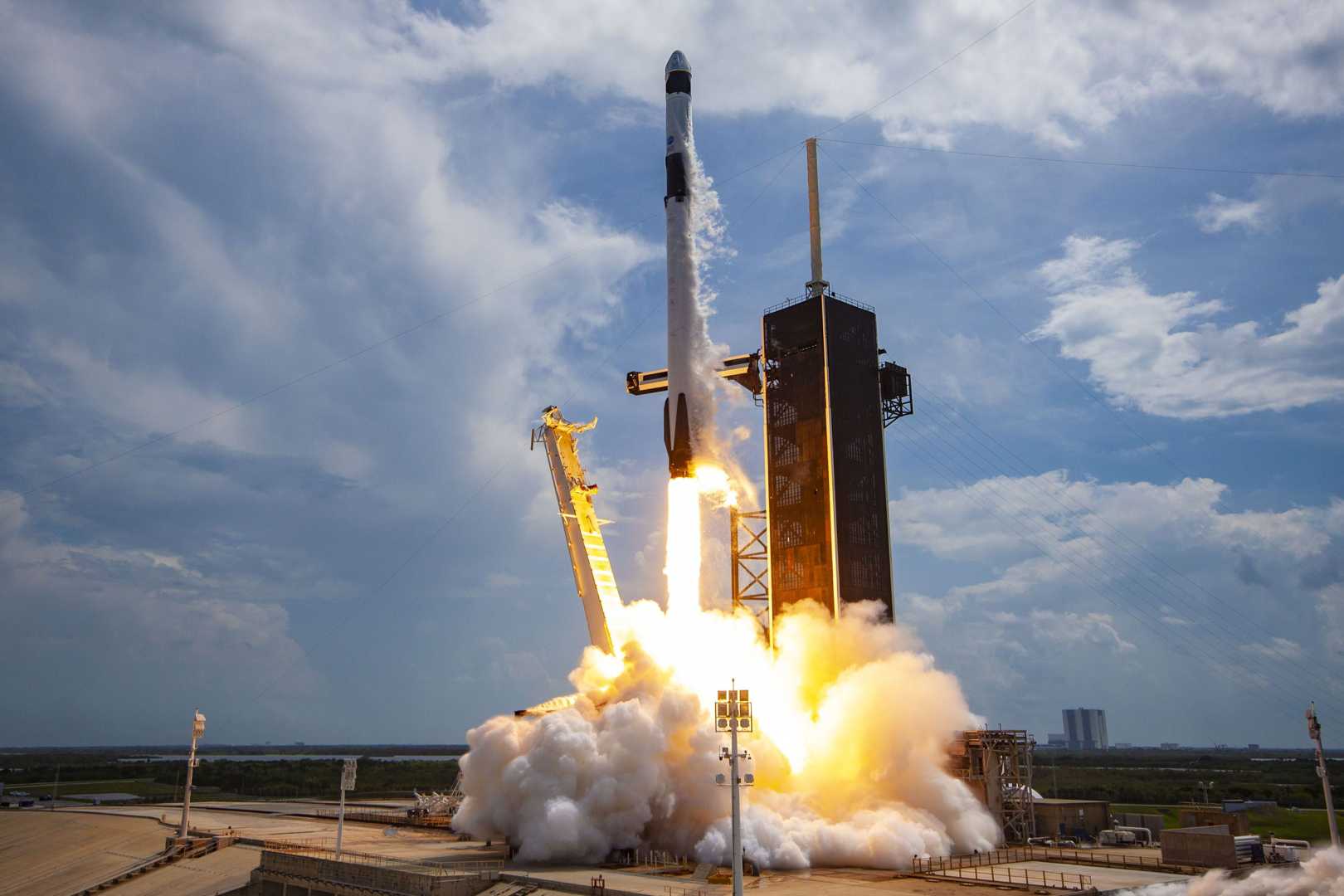News
SpaceX Breaks Rocket Reuse Record with Midnight Launch

CAPE CANAVERAL, Florida — SpaceX achieved a new milestone early Monday morning, April 14, 2025, as its Falcon 9 rocket booster, tail number 1067, launched for a record-setting 27th time from Cape Canaveral Space Force Station. The mission supported the deployment of 27 Starlink V2 Mini satellites into low Earth orbit, further solidifying the booster’s status as a leader in SpaceX’s fleet.
The liftoff occurred at 12 a.m. EDT (0400 UTC), with launch weather officers from the 45th Weather Squadron forecasting over 95% favorable conditions. This launch came amid a period of dry weather and seasonable temperatures at the Space Launch Complex 40.
Nearly four years since its first mission on June 3, 2021, the Falcon 9 booster demonstrated its reliability by successfully landing on the droneship ‘Just Read the Instructions‘ (JRTI) about eight minutes post-launch. This marked the 115th landing for JRTI and the 431st overall booster landing for SpaceX.
“Every flight pushes the boundaries of what we can achieve,” said a SpaceX spokesperson. “This record reinforces our commitment to reusability and our mission to expand the Starlink network.”
In addition to the record launch, SpaceX conducted a high-altitude test of its Crew Dragon capsule on Sunday, further preparing for a mission carrying two NASA astronauts to the International Space Station this spring. The Crew Dragon will test its ability to escape a rocket failure, ensuring the safety of its crew.
SpaceX is poised for continued activity this week, with another launch planned Thursday, this time featuring a refurbished Dragon supply ship loaded with nearly 6,000 pounds of cargo and experiments bound for the ISS.
While excitement builds around upcoming launches, a delay was announced for the next Falcon 9 mission, originally slated to carry 10 Iridium communications satellites. Officials reported a 24-hour postponement due to an issue with ground equipment tested for the payload.
Earlier in the week, SpaceX launched both the NROL-192 and Starlink Group 12-17 missions, marking a busy period for the aerospace company. In total, three Falcon 9 missions are scheduled for this week alone.
Additionally, Blue Origin is also set to make headlines with its New Shepard rocket carrying an all-women crew on the NS-31 mission, scheduled for suborbital flight on April 14.
In the broader context, SpaceX continues to extend its lead in the commercial space race, achieving unprecedented goals and pushing the limits of rocket reusability. As milestones are met, the implications for future space missions and satellite deployments grow exponentially.












